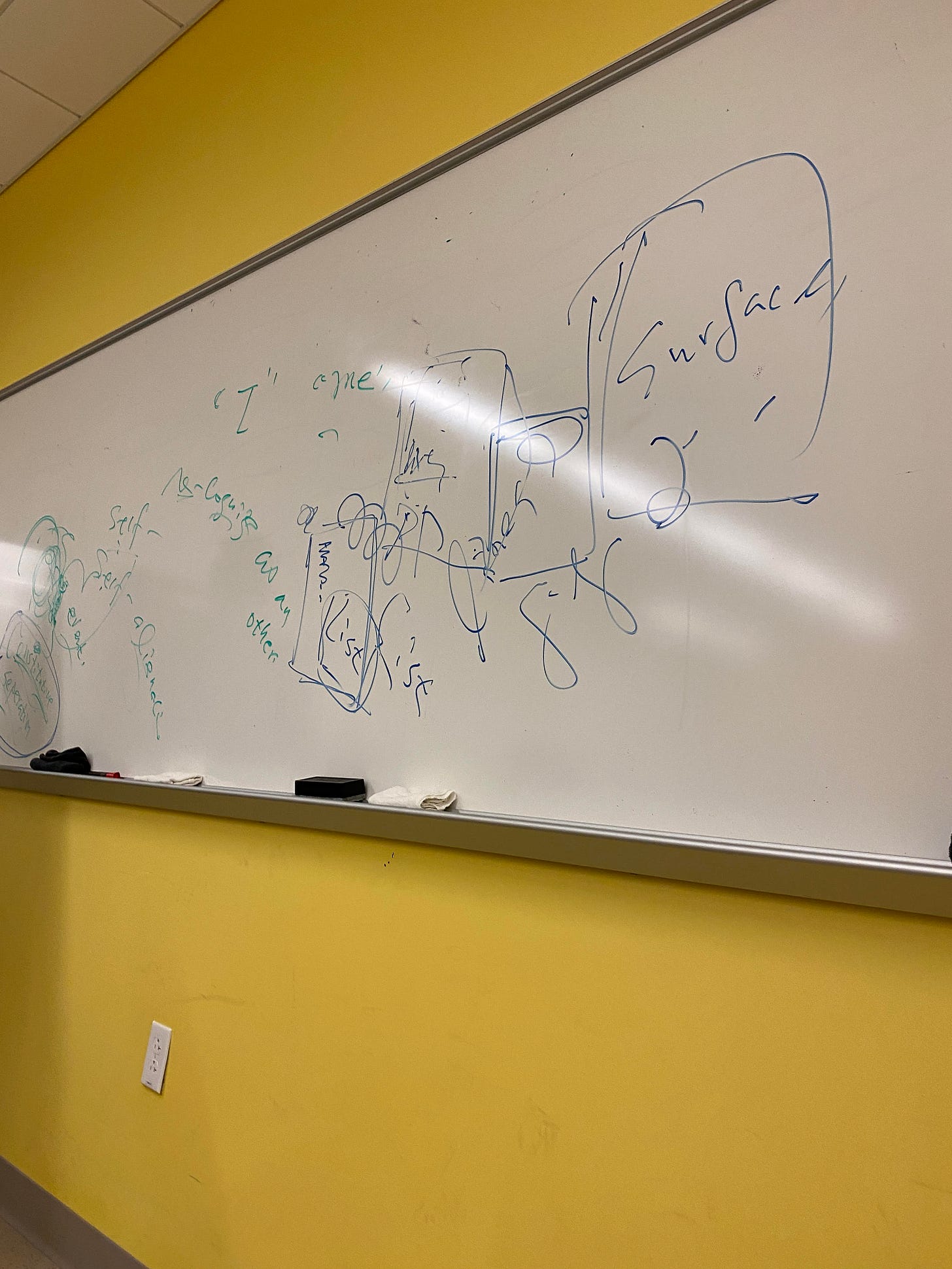The Language of Charlatans
Understanding the ways of the intellectual imposter
If the picture above looks like unintelligible nonsense to you, that’s because it is unintelligible nonsense. It’s from a class in college. That class was called semiotics. What the professor would say while scribbling such things was also, you guessed it, unintelligible nonsense.
You might say, well, you weren’t smart enough to understand. Maybe. But having read about this concept, what is more likely is that this man was a fake. Especially considering he once let it slip once that he “hates reading.”
Consider the definition of semiotics: “the study of signs and symbols and their use or interpretation.” Surely you could do some deep dives on this concept, but it is simple enough. Let us also consider the words of Naval Ravikant that “it is the mark of a charlatan to explain a simple concept in a complex way.” Look again at that picture. This professor took a straightforward concept and gave lectures like he was Oppenheimer making breakthroughs on a chalk board at Los Alamos.
This was far from an isolated situation at my university. Hordes of such intellectual imposters haunted the humanities. People who, I imagine, would never have a chance to speak with Voltaire, the French philosopher who famously declared he would only talk to people who define their terms. The intellectual imposter does not define terms. In their eyes, definitions themselves are probably part of the oppression of the socio-neuro-linguistic-capitalistic-hegemonic-patriarchal systemic subtext of the post-Engels cultural class structure anyway.
Someone who does speak intelligibly and define words precisely is the evolutionary biologist Richard Dawkins. In 1998, he created a fun thought experiment. “Suppose you are an intellectual impostor with nothing to say” he writes, “but with strong ambitions to succeed in academic life…what kind of literary style would you cultivate? Not a lucid one, surely, for clarity would expose your lack of content.”
Not a lucid one, surely, for clarity would expose your lack of content.
If you were too lazy to engage in rigorous studies but had a burning desire to appear profound and be celebrated in academia, how would you act? Would you speak in a clear way? Would you be succinct? Or would you shroud your words in vagueness? Wouldn’t that be a better strategy — to never define things, to avoid clarity? To always use verbosity and jargon to your advantage? That way, if someone challenges your words, you can always say, nope, that’s not what I meant. You can shape shift from jargon to more jargon while signaling to other academics that you are willing to play the game.
What game? Not the game of seeking truth. Not the game of genuine intellectual inquiry. No, none of that. Status games within University departments, that is the game. This is the game of the intellectual imposter.
What a stupid game.
Play a better game. Seek clarity. Admit when you don’t know things; marvel at your infinite ignorance and be curious. Speak precisely. Be someone who could converse with Voltaire.



The mistake complexity for depth. The trappings of a thing are mistaken for the thing itself.
Jeff, what strikes me about this is how well storytelling works as a method of defining one's terms. You opened with a snapshot, literal and descriptive, taken from your own experience, which immediately anchors the conversation in a shared understanding. Define your terms in storytelling is, "show me what we're talking about," or as Jonny mentions, "describe the world you're arguing for."